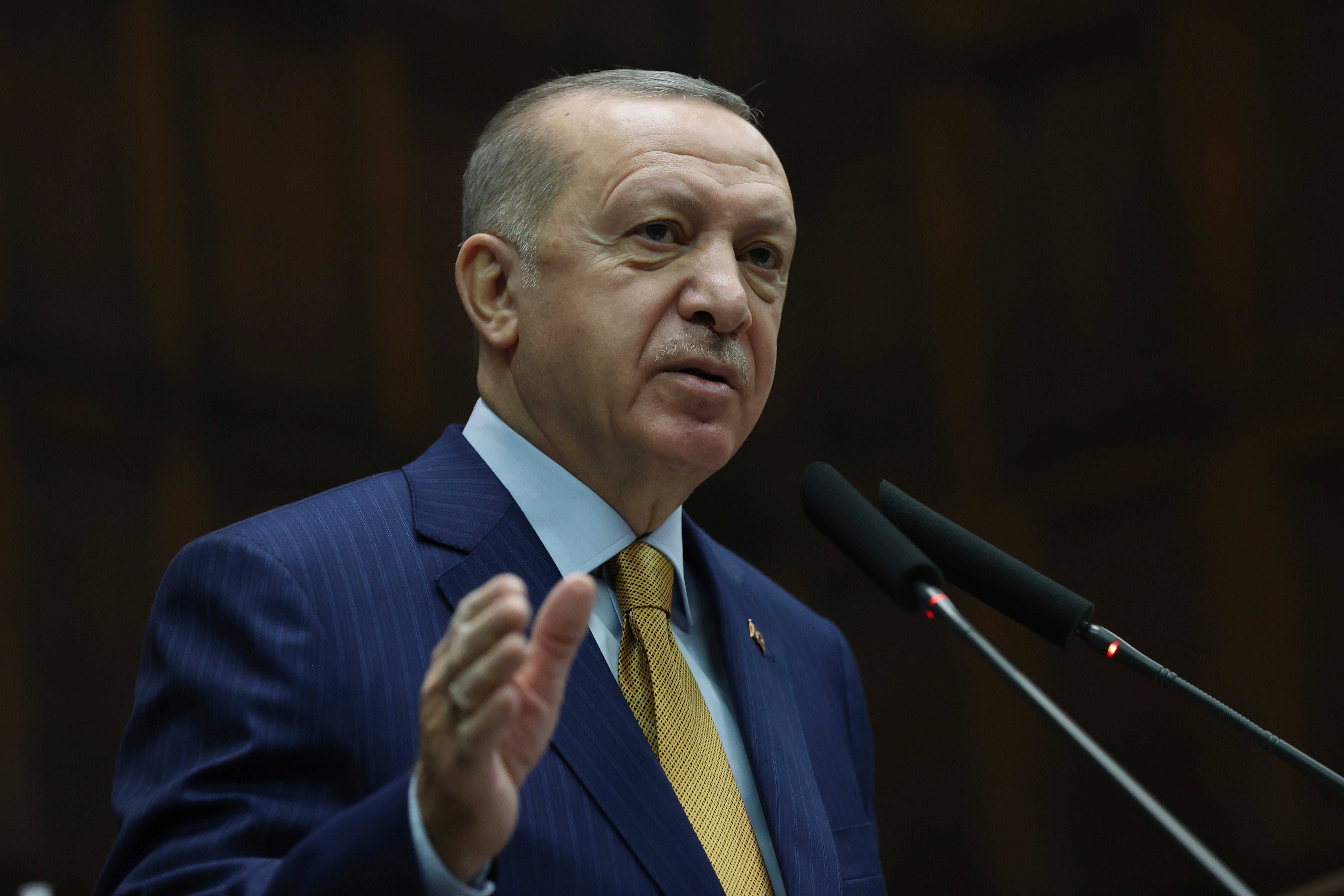Turkey's president slams European court for Demirtas ruling
Turkey’s president has lashed out against the European Court of Human Rights after its ruling that Turkey must immediately release a prominent Kurdish politician

Your support helps us to tell the story
From reproductive rights to climate change to Big Tech, The Independent is on the ground when the story is developing. Whether it's investigating the financials of Elon Musk's pro-Trump PAC or producing our latest documentary, 'The A Word', which shines a light on the American women fighting for reproductive rights, we know how important it is to parse out the facts from the messaging.
At such a critical moment in US history, we need reporters on the ground. Your donation allows us to keep sending journalists to speak to both sides of the story.
The Independent is trusted by Americans across the entire political spectrum. And unlike many other quality news outlets, we choose not to lock Americans out of our reporting and analysis with paywalls. We believe quality journalism should be available to everyone, paid for by those who can afford it.
Your support makes all the difference.Turkey’s president on Wednesday accused the European Court of Human Rights of “defending a terrorist” after it ruled that Turkey must immediately release from prison a prominent Kurdish politician.
Speaking to his ruling party's lawmakers, President Recep Tayyip Erdogan called imprisoned politician Selahattin Demirtas a “terrorist who was responsible for dozens of deaths during violent protests five years ago.
Erdogan also accuses Demirtas of links to outlawed Kurdish insurgents. The Kurdish politician faces up to 142 years in prison on terror charges but denies any wrongdoing.
Demirtas co-led the second-largest opposition Peoples’ Democratic Party, or HDP, before his arrest in November 2016. He ran for president twice against Erdogan — once while incarcerated — and is a vocal critic of the government.
The 2015 demonstrations in the mostly Kurdish southeast accused Turkey of inaction as the Islamic State group besieged the Syrian Kurdish town of Kobani, across the border.
Turkish authorities say the Kurdish fighters in Kobani and along northern Syria are linked to a decades-long insurgency by the Kurdistan Workers’ Party, or PKK.
Dozens of elected HDP lawmakers and mayors, as well as thousands of activists members have been arrested in a crackdown on the party for alleged links to the PKK. Erdogan's nationalist ally recently called for the party to be closed down.
On Tuesday, the Grand Chamber of the ECHR in Strasbourg ruled that Demirtas’ four years in prison violated his rights on five fundamental rights categories, including the freedom of expression.
The court said Demirtas’ long detention, during two important elections, showed Turkey “had pursued the ulterior purpose of stifling pluralism and limiting freedom of political debate.”
Erdogan said the European court had ruled in an “uncommon” way, saying domestic legal avenues had not yet been exhausted by Demirtas and his lawyers. He said the court cannot rule in a way that bypasses the Turkish judiciary and the Turkish courts would “only” evaluate ECHR decisions.
“These steps are politically motivated,” Erdogan said, adding that the court employed “double standards.”
Meanwhile, the ECHR announced that its website came under a “large-scale” cyberattack after its Demirtas ruling, making the site inaccessible for several hours.
“The Court strongly deplores this serious incident,” a statement said. It's unclear who was behind the attack.
—-
Lorne Cook contributed from Brussels.